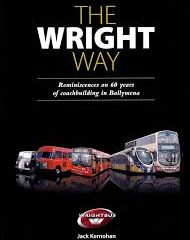The Legacy of Who Wants to Be a Millionaire?

Introduction
Since its debut in 1998, ‘Who Wants to Be a Millionaire?’ has captured the hearts of millions, revolutionising the quiz show format and propelling the genre to new heights. With its iconic lifelines and suspenseful gameplay, the show not only became a staple of British television but also expanded its influence globally, adapting to numerous countries and cultures. This article explores the show’s historical significance and current relevance in the landscape of entertainment.
The Rise of the Show
‘Who Wants to Be a Millionaire?’ premiered on ITV in the UK and was created by David Briggs, Mike Whitehill, and Simon Mayo. The format was simple yet compelling: contestants answer a series of multiple-choice questions, escalating in difficulty, to win increasing amounts of money, with the ultimate goal of becoming a millionaire. The show quickly became a cultural phenomenon, attracting large audiences and inspiring parodies, merchandise, and even a modern board game.
Key Features and Innovations
The show’s format introduced several groundbreaking features, including lifelines such as 50:50, phone-a-friend, and ask the audience, which added layers of strategy and excitement. The use of dramatic music and visual effects heightened suspense, making viewers feel more engaged. This innovative approach to quiz shows set a new standard for television entertainment, leading to countless adaptations around the world, from the United States to India.
Current Status
Despite fluctuations in viewership over the years, ‘Who Wants to Be a Millionaire?’ remains relevant today. The show has seen various revivals, including new hosts and updated formats to attract younger audiences. In 2023, a special anniversary series aired, showcasing past contestants and celebrating memorable moments, reminding viewers of its historical significance. Furthermore, the show’s online quizzes and spin-offs have kept its legacy alive in the digital age.
Conclusion
The impact of ‘Who Wants to Be a Millionaire?’ on television and popular culture cannot be overstated. It not only brought quiz shows back into the mainstream but also introduced engaging content that appealed to a diverse audience. As we look ahead, it is likely that the show will continue to evolve and adapt, integrating new technologies and formats to retain its charm. For fans and newcomers alike, ‘Who Wants to Be a Millionaire?’ is a testament to the power of innovative entertainment that keeps us dreaming of striking it rich.









